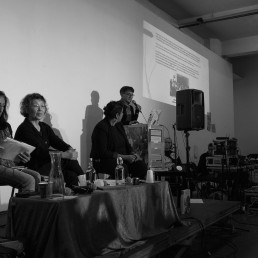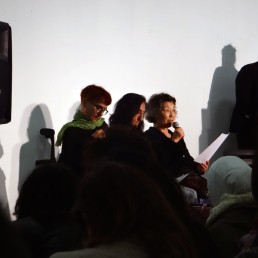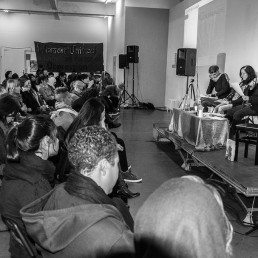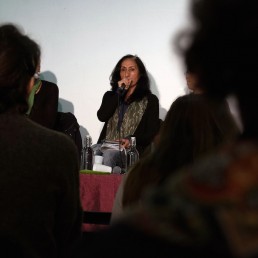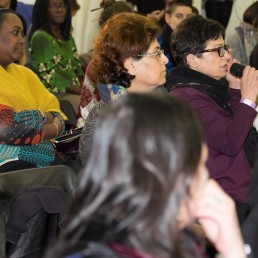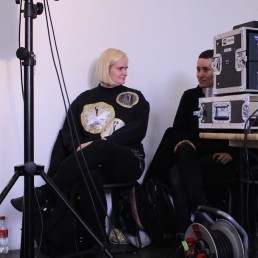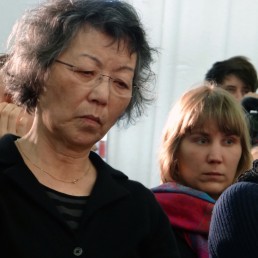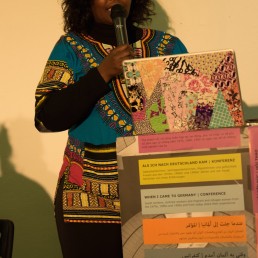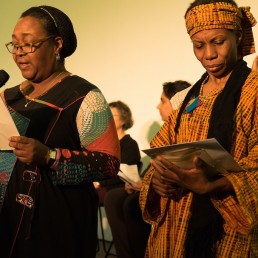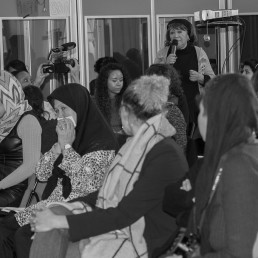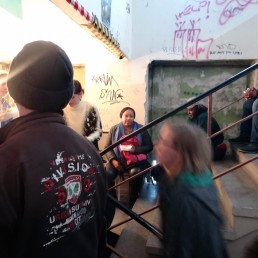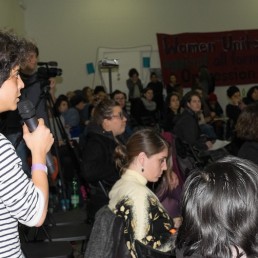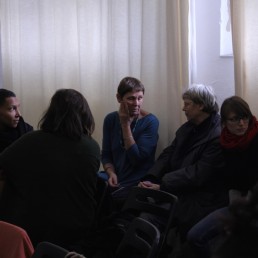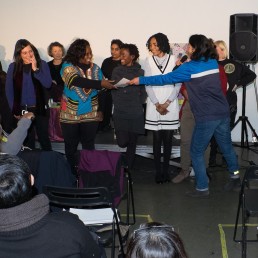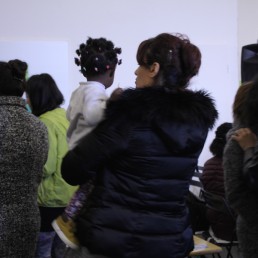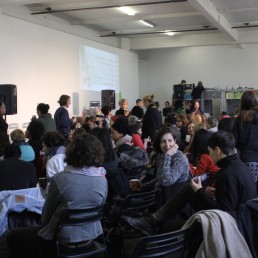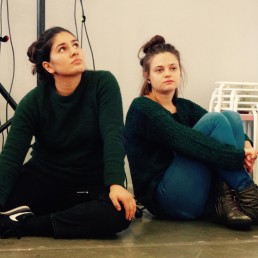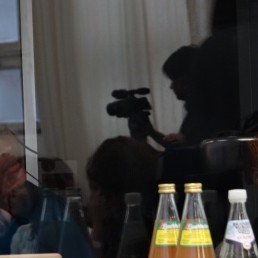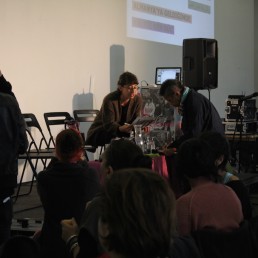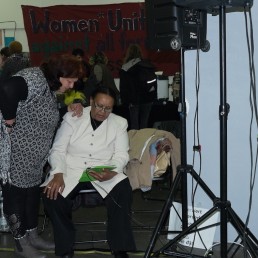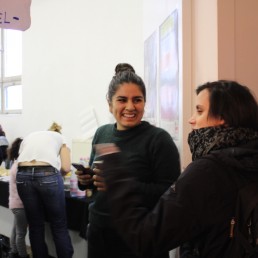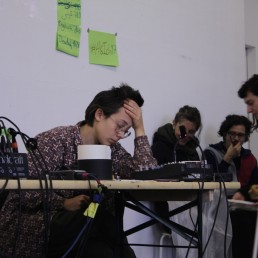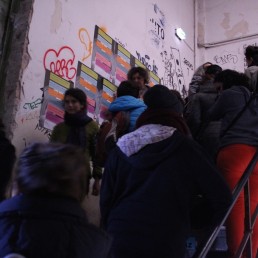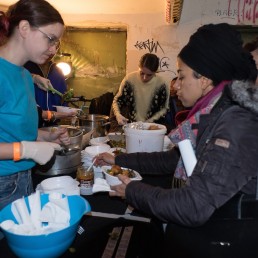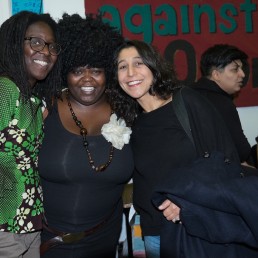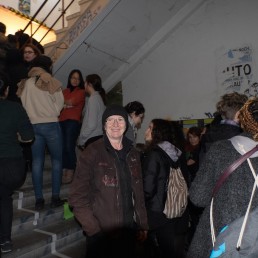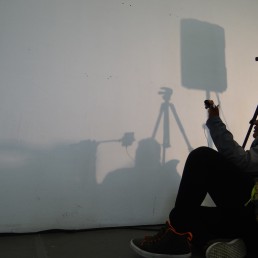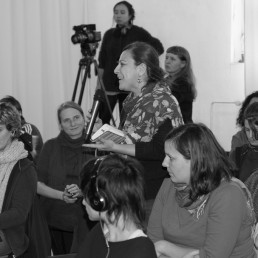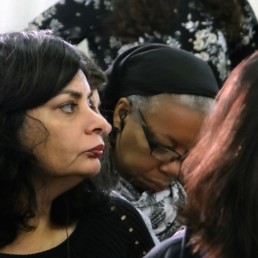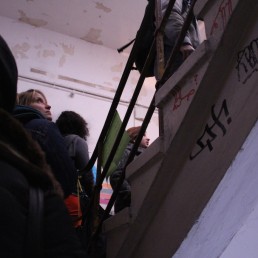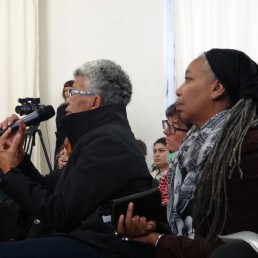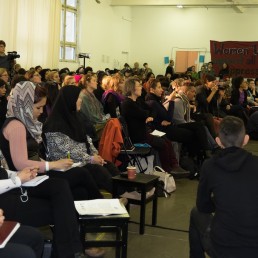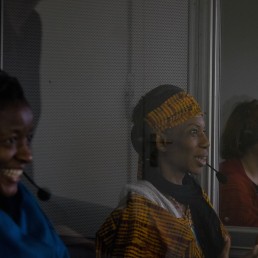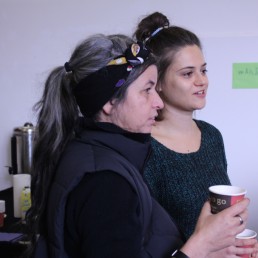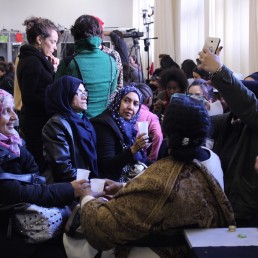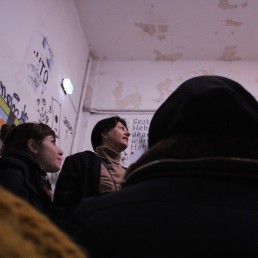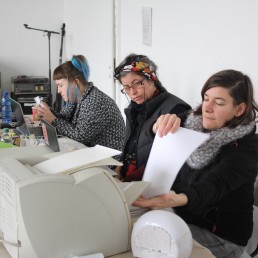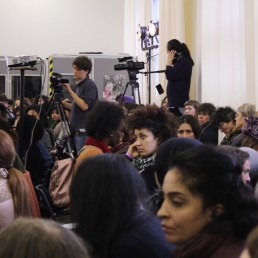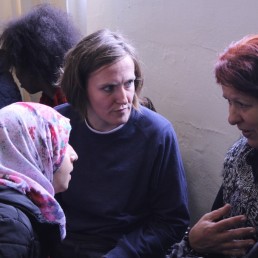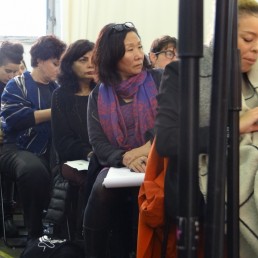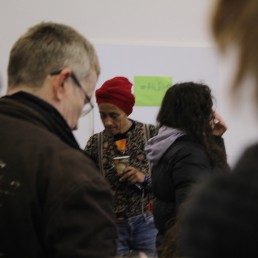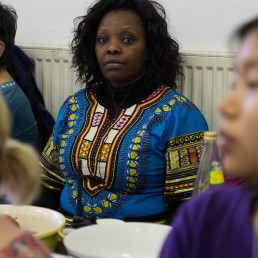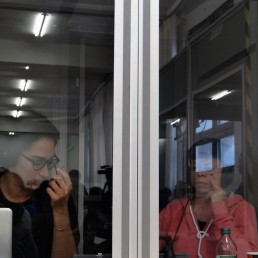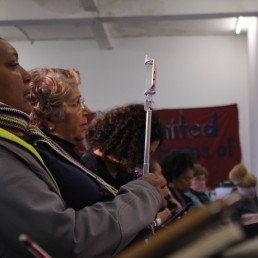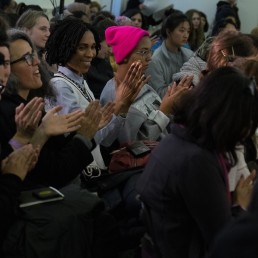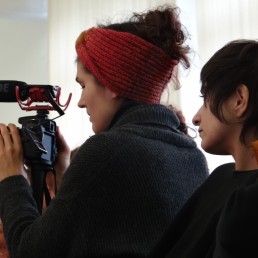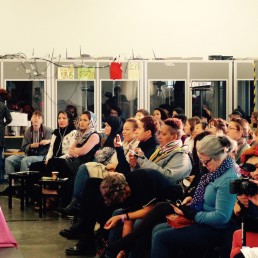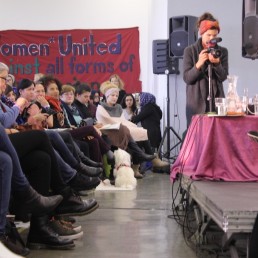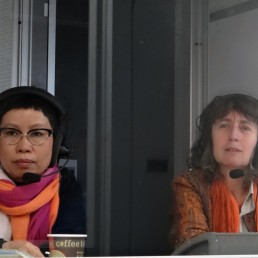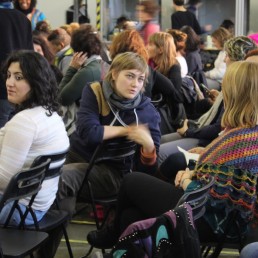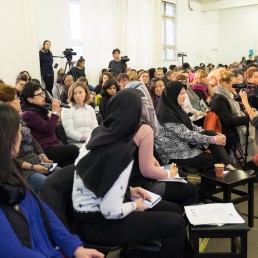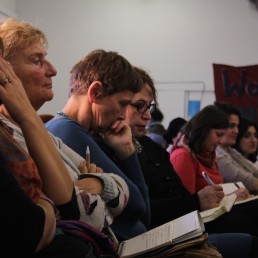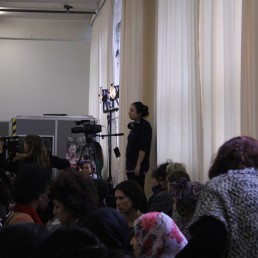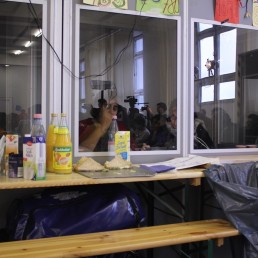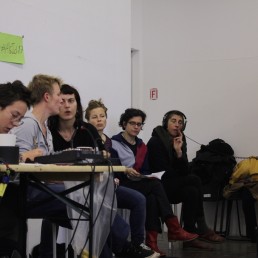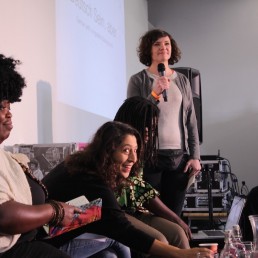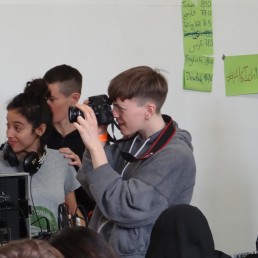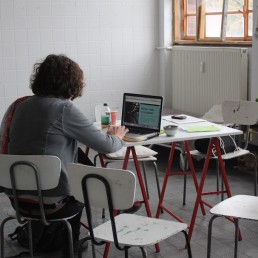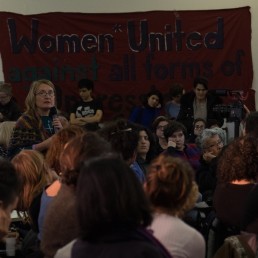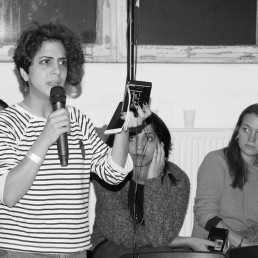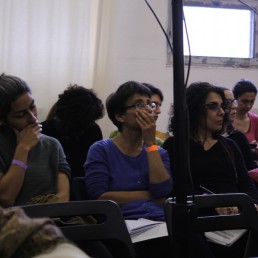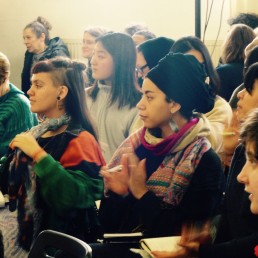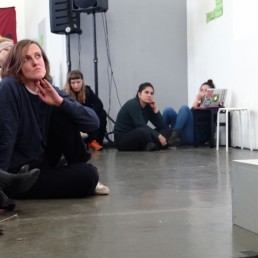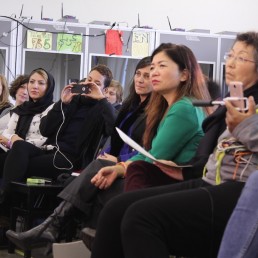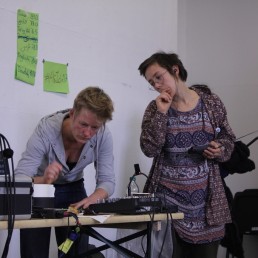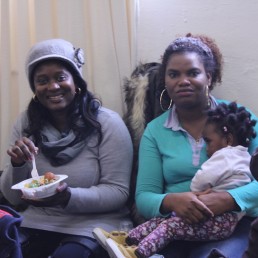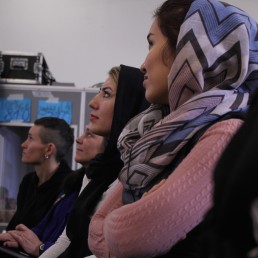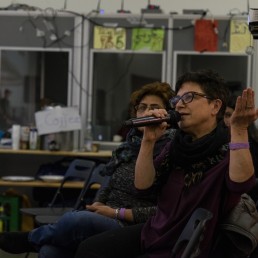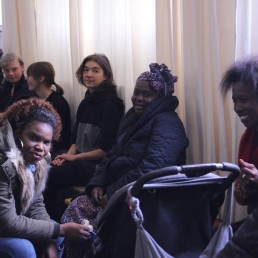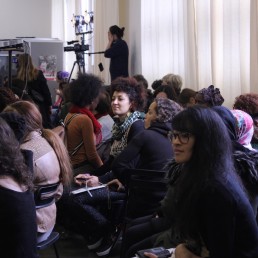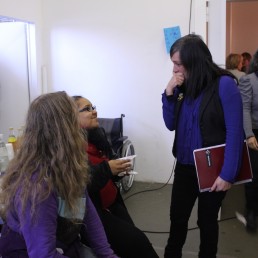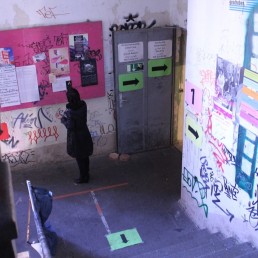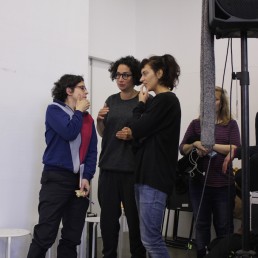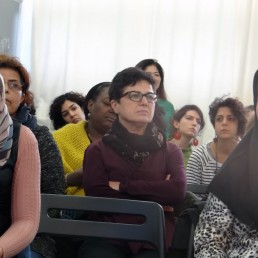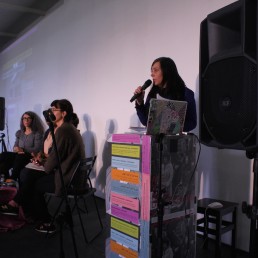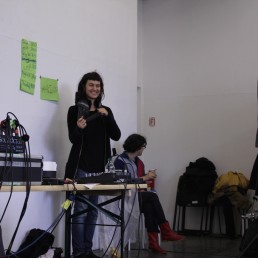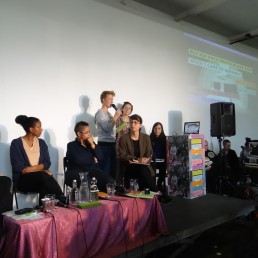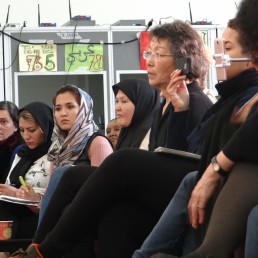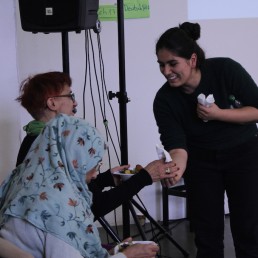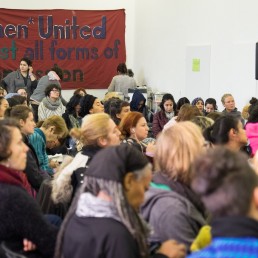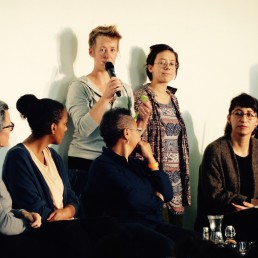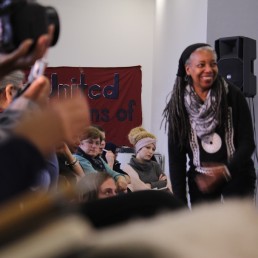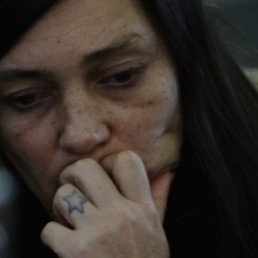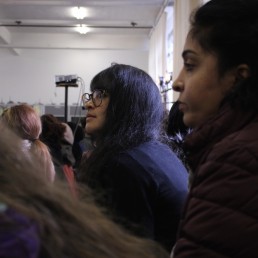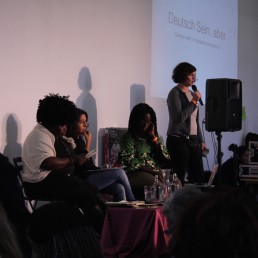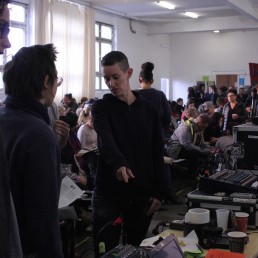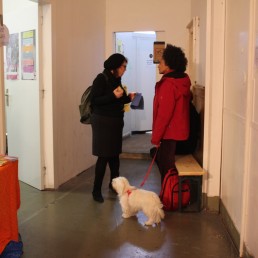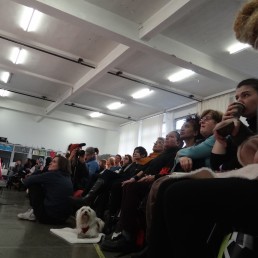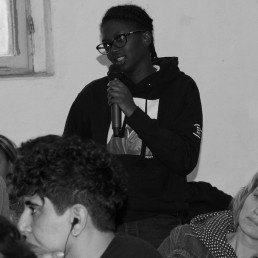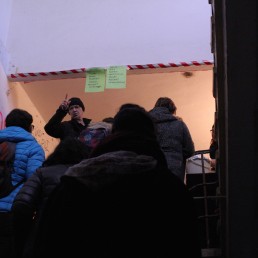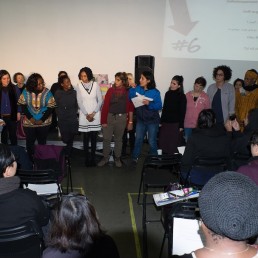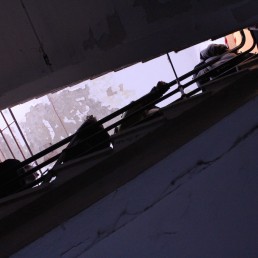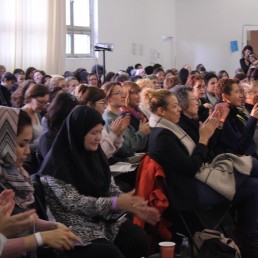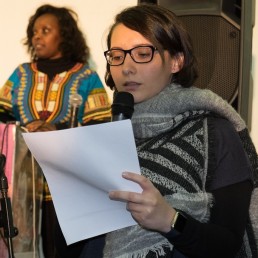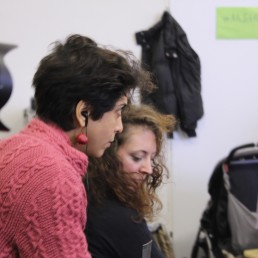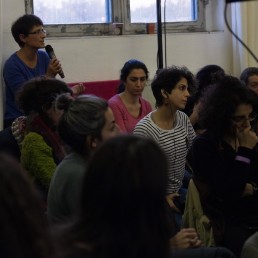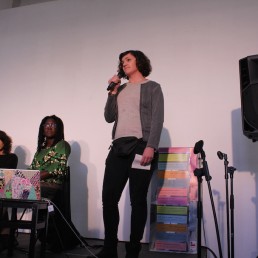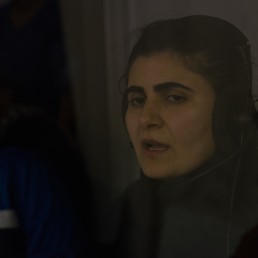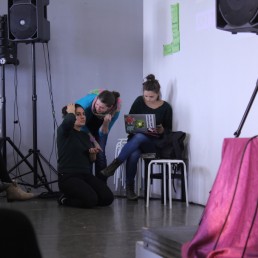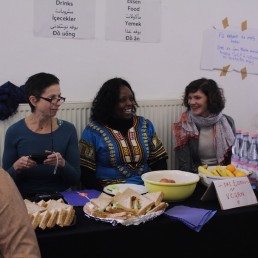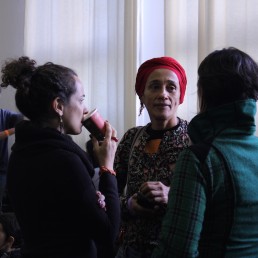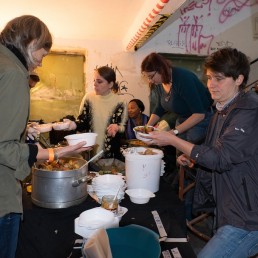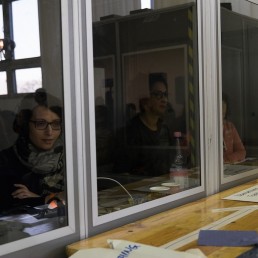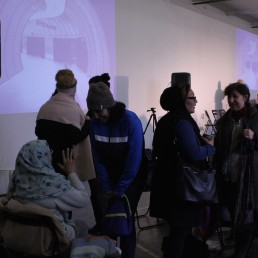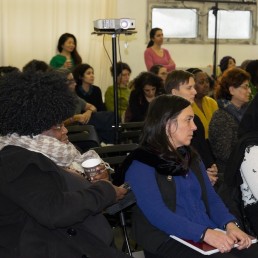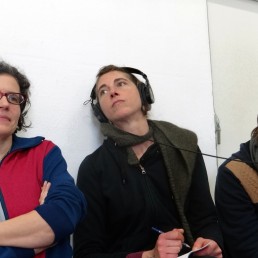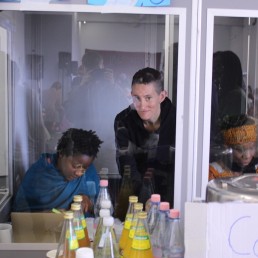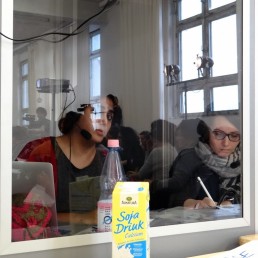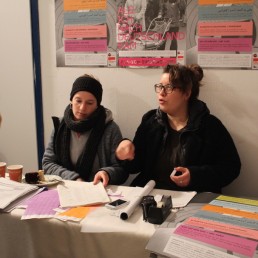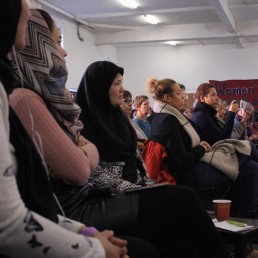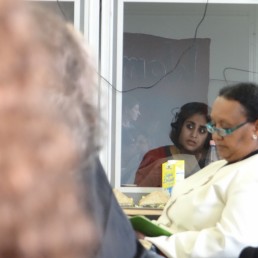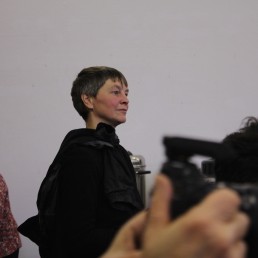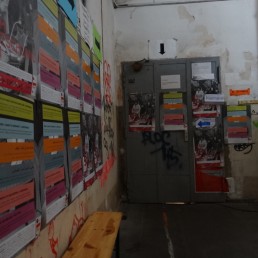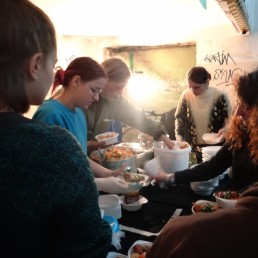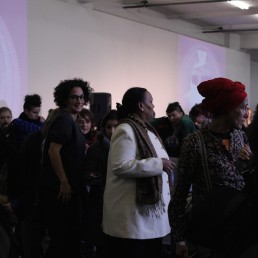Self-organisation and feminist work in the context of migration
Conference | When I came to Germany | October 2017 | Berlin
ConferenceWhen I came to GermanyOctober 2017 | Berlin
The road to self-determination and mutual encouragement: Women with experience of building groups and initiatives describe the process of creating space for different generations and backgrounds to work together.
The video can be downloaded on Vimeo. See license below.
Photos of the Panel
SPEAKERS & MODERATOR
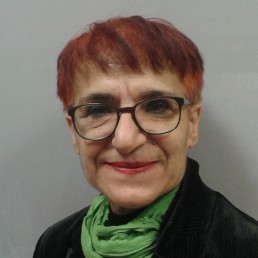
Gülşen Aktaş has dedicated her life to activism and to working with women in Germany. Born in Dersim, she trained as a primary school teacher in the province of Diyarbakir. At the age of 21 Gülşen followed her mother Şirin to Germany, where she studied political sciences and worked in one of the first women's shelters in Berlin as well as in several immigrant and women's projects. She was an active member of ""Schabbeskreis"" and is part of several women networks. Since 2007 she has been the director of ""huzur"", the first intercultural recreational center in Berlin, which is frequented by elderly people from about 30 countries.
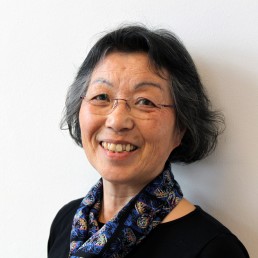
Kook-Nam Cho-Ruwwe was born on the 30th November 1948 in Kimcheon, South Korea. She completed her vocational training as a nurse before coming to Germany in 1970, after which she worked in various medical and nursing facilities for over 40 years. She is a founding member of the Korean Women’s Group in Germany and chairwoman of the umbrella organization of female migrant organizations (DaMigra e.V.). She is concerned with issues such as the shortage of nurses in Germany since the end of the 1950s, the recruitment of Asian nurses from India, the Philippines and Korea, and the forced return of Asian nurses to their countries of origin. As well as working on these topics, she has organised various resistance campaigns and has fought for irredeemable residence and workers‘ rights to be inscribed in German immigration law.
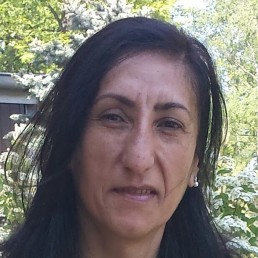
Seher Yeter was born in 1971 in Erzincan. She moved to Istanbul with her family when she was 4. She went to primary and secondary school, and completed half of high school. Then she started to work in quality control in the textile industry where she worked for a long time. Besides her work in textile factories, she was active working for the women's struggle, women's rights and women's freedom. In order to gain more knowledge in these topics, she learned to learn from the experiences, lives and struggles of the women in her country and the women in other parts of the world. She has been living in Germany for 17 years and she a part of the women's liberation struggle in Germany. She is active in the Socialist Women Association (SKB) and draws attention to the importance of the cause for the Internationalist women's struggle.
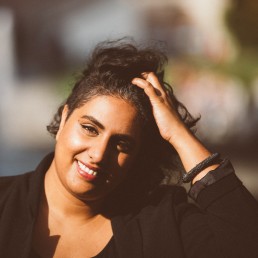
Saboura M. Naqshband studied Arabic Studies, Political Sciences and Social- and Cultural Anthropology in London, Kairo and Berlin. In Berlin and throughout Germany she works as an anti-discrimination and empowerment trainer, e.g. for Gladt e.V., association for LGBTI* refugees and migrants and as a translator for w_orten und meer gmbh [w_ords and sea corporation], an anti-discriminatory action publisher. She works particularly on topics such as (anti-Muslim) racism, Muslim feminism and religion, gender and sexuality. Moreover, she is active worldwide in intersectional feminist alliances and in the South Asian diaspora in Europe. As a project consultant at DaMigra she is responsible for the areas of project management, connecting with MSOs and networking.
Images from the panellists
About the conferenceWhen I came to Germany
International Womenspace organised a two-day conference in Berlin in October 2017. There were six-panel discussions focusing on the experiences of women who came to West Germany as guest workers, to East Germany as contract workers, as migrants and refugees to the reunified Germany and of German women who are affected by racism.
The invited speakers talked about and compared their experiences of arriving and settling in Germany as well as working and organising as women here. We wanted to put the knowledge of multiple generations of migrants into a historical perspective, and create a space where we can exchange our individual and collective experiences in order to counteract false ideas of victimhood related to migrant women, whose voices are too often ignored in German society due to racism, xenophobia and sexism.
We wanted to counteract the mainstream narrative. We did not only focus on the problems that migrant and refugee women, as well as German women who are affected by racism, are constantly confronted with. We also highlighted the many and various forms of women’s resistance; in the workplace, in society and against institutional oppression.
It was a success! We were very moved and inspired by the response to the conference, both before, during and after. On each day, over 250 women came together, exchanged experiences about political fights and resistance in Germany, learned from the histories of different generations from both East, West and reunited Germany, got to know each other, and built networks. This was made possible, despite language barriers, thanks to running translation in six languages: German, English, Arabic, Farsi, Turkish & Vietnamese. There was an atmosphere of openness and solidarity, so both speakers and participants were able to talk freely about their personal experiences.
Feedback from participants showed that an event like this was very needed, and that there is a strong wish for continued exchange, political action and networking. We consider the conference a starting point and look forward to the next steps…
Photos of the conference | day 2
LICENSE INTERNATIONAL
This work is licensed under a Creative Commons Attribution-NonCommercial-NoDerivatives 4.0 International License.
LIZENZ DEUTSCHLAND
Dieses Werk ist lizenziert unter einer Creative Commons Namensnennung – Nicht-kommerziell – Keine Bearbeitung 3.0 Deutschland Lizenz.
IW*S
International Women* Space is a feminist, anti-racist political group in Berlin with refugee and migrant women* and non-migrant women* as members.
